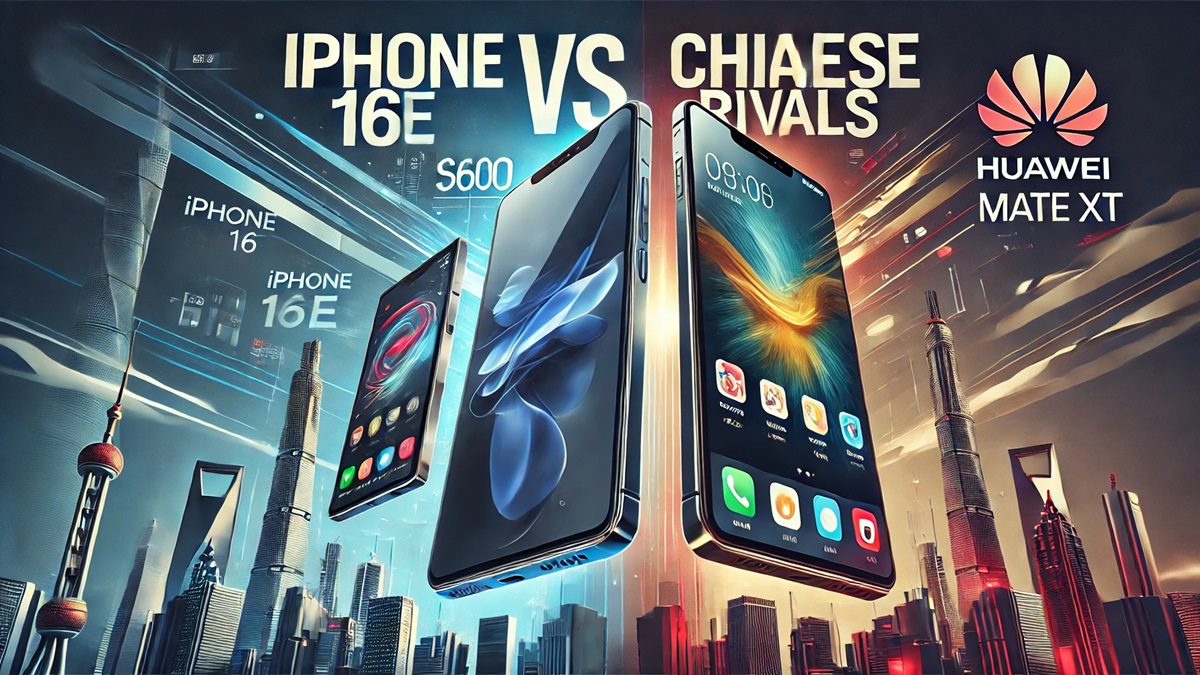Introduction:
In the ever-evolving world of smartphones, Apple faces a fierce battle in China. With its new iPhone 16e, Apple aims to reclaim its position against rising Chinese rivals like Huawei and Vivo. Let’s explore how Apple is strategizing to regain dominance in this competitive market.
The iPhone 16e: A Strategic Move for Apple
Apple’s latest offering, the iPhone 16e, marks a bold step into China’s smartphone landscape. Priced at approximately $600, it aligns with China’s national stimulus program, which subsidizes phones under $800. This move could help Apple appeal to price-conscious consumers while maintaining its premium brand image.
- Key Features of the iPhone 16e:
- Affordable pricing compared to flagship models.
- Eligibility for government subsidies.
- Access to advanced features like Apple Intelligence (pending approval).
Challenges for Apple in China
Despite its innovative offerings, Apple faces significant hurdles in the Chinese market. These challenges extend beyond economic factors and include regulatory barriers and competition from local brands.
Economic Slowdown and Consumer Preferences
China’s slowing economy has shifted consumer preferences toward budget-friendly options. According to IDC analyst Will Wong:
- The average selling price of Vivo, Huawei, and Apple smartphones in 2023 was $298, $658, and $1,007, respectively.
- Consumers are increasingly opting for midrange devices that offer similar features at lower costs.
Regulatory Hurdles and AI Restrictions
Chinese regulators have yet to approve Apple’s AI features, known as Apple Intelligence. Meanwhile, domestic brands like Huawei have already integrated popular AI tools, such as:
- Image-editing capabilities.
- Instantaneous language translation.
This disparity gives Chinese manufacturers a competitive edge in the local market.
Huawei’s Resurgence: Innovation Amid Sanctions
Huawei’s rise back to prominence showcases the power of innovation and government support. Despite US sanctions limiting access to essential components, Huawei has thrived by:
- Developing its own phone operating system.
- Overcoming chip limitations through software optimization.
As Alex Huang, Huawei’s Chief Marketing Officer, stated:
“Innovation is how Huawei gained market share in China.”
Government Support for Local Brands
The Chinese government plays a pivotal role in bolstering domestic companies like Huawei. Measures include:
- Preferential buying contracts.
- Subsidies from state-affiliated organizations.
These efforts have enabled Huawei to overcome supply-chain challenges and produce more midrange devices, boosting sales significantly.
FAQ Section
Q: Why is Apple struggling in China?
A: Economic slowdown, regulatory restrictions on AI features, and stiff competition from affordable local brands contribute to Apple’s challenges.
Q: What makes Huawei competitive despite US sanctions?
A: Huawei compensates for hardware limitations with innovative software solutions and benefits from strong government support.
Q: How does the iPhone 16e differ from other Apple models?
A: It’s a budget-friendly version designed to attract cost-conscious consumers while leveraging government subsidies in China.

Conclusion
Apple’s journey in China highlights both opportunities and obstacles in one of the world’s largest smartphone markets. With the launch of the iPhone 16e, Apple hopes to regain lost ground against Chinese rivals. However, success will depend on navigating economic trends, regulatory hurdles, and fierce competition.
Also Read: iPhone 16e vs iPhone 16: Which One Should You Pick?
